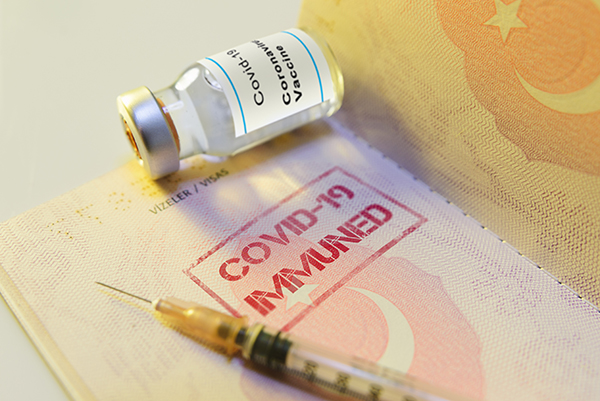10 Ways to cope with isolation, quarantines and extended power outages
12/05/2021 / By Matthew Davis

Blogger and book author Erika Nygaard said there is a need to be calm and focused in order to cope with isolation, quarantines and extended power outages.
“In this day and age, we are used to being able to go anywhere and be entertained. Even as adults, we struggle to deal with our downtime. We fantasize about being home for a whole week with nowhere to go and nothing to do but don’t know what to do when it happens’’ Nygaard wrote in “The Prepper’s Yearbook.”
According to Nygaard, panicking will only create more chaos and confusion.
“If you are in a quarantine whether it is self-quarantine or a mandated quarantine, you should plan to be home for a minimum of two weeks. Most people will only plan to be home for one week, but you should at least double that time. To be safe, I would plan for four weeks just to err on the side of caution. If you or your family ends up sick, you will need to be home for as long as it takes to recover and recoup,” she wrote.
Nygaard said one must try to make this time less stressful for everyone, remembering an ice storm that hit her hometown when she was eight years old.
“I remember my parents making the best of the situation. We had a wood stove that kept the living room and kitchen warm. We still ate good meals and we set up in the living room to sleep and hang out. Even though my brother and I ended up coming down with the chickenpox during that time too, we still had fun and played. If I remember right, the power was out for over a week.”
Attitude is everything when dealing with a situation like this. Everyone will need to keep their attitudes in check which will be difficult at times.
Must-do to keep your sanity when forced to stay at home
1. Make lists. You should be making lists of things to do inside your home. Cleaning lists, project lists and many other lists will help focus while you are unable to leave your home. Every morning (or every night before bed), you should be making a to-do list to keep your mind off the isolation and keep yourself productive.
2. Make a meal plan. You know exactly how much food you have in your home. If you don’t, you need to make an inventory. Just like having a list to plan out your day, you need to plan your meals to make this time a lot less stressful for you.
3. Give everyone assigned tasks to do. You will not be the only one struggling with your sudden free time. The people you live with will also be struggling. Make sure everyone has assigned chores to do every day and that they do them. If you have kids at home, keep the tasks age-appropriate. Keeping your home clean, tidy and uncluttered will be very important during this time.
4. Make sure you have things to do at home. Books, cards, board games, word puzzles, small projects, drawing supplies, dress-up clothes for the littles and more will help everyone entertain themselves much easier. While most kids and people can entertain themselves, having a few options or some new-to-them things to play with can definitely boost the morale around the house.
5. Stick to your routines and create some new ones. Routines are sanity savers. You should still be going to bed and waking up at the same time. You should still be taking a shower and getting ready for the day every day. Mealtimes and snacks should still be about the same time every day. By keeping daily life fairly normal for everyone, you can create a sense of normalcy that every one craves.
6. Make time for fun. If you can, set time aside every day for a fun time. If you can go outside in the yard, play a game or do something physical to burn off energy. If you can’t go outside, have a dance party inside or play hide and seek in the house. Doing something physical will help everyone’s mood in the house, as well as keep the morale up.
7. Play music throughout the day. The silence can be deafening and somewhat distracting, but yet you might not want the television on all day. Playing some music all day can be soothing. Even having a radio going can help give you some peacefulness.
8. Keep in contact with the outside world. Checking in with loved ones and keeping up with the world outside your home can certainly help your peace of mind. However, keep in mind the dangers of being on social too much. Getting bombarded with much information and misinformation can quickly lead to some destructive emotions like paranoia and fear.
9. Take notes during this time. Journaling through this time can be really beneficial for you. You can get your feelings down on paper and take notes of what happened when it happened. You can make notes of what is working and not working. You might be too distracted to remember what happened yesterday and keeping notes will definitely help you to remember. By doing this, you can give an accurate account of what happened to help someone else.
10. Give everyone some alone time, including yourself. While there are people who thrive on being around other people, most people need some alone time to recharge their batteries and to clear their minds. You also cannot be offended if someone asks to be left alone for a bit. That someone will be happier afterward, and you will be too.
Nygaard said that you can do other things to make home relaxing and calm. You can light candles or diffuse calming essential oils to keep the inside of your home a place that you want to be home for.
Keeping your home uncluttered and tidy will help give you some calm. Having food, water and a source of heat should be at the top of your list. Being prepared is the ultimate peace of mind, but we should also be thinking about the mental aspects of these situations.
Many bad things have happened because someone couldn’t handle themselves mentally or emotionally. Do not let that happen in your home.
Follow Mental.news for more news related to mental health.
Sources include:
Tagged Under: attitudes, downtime, isolation, mental health, music, pandemic, power outages, quarantine, quarantines, sanity, silence, simple life, Social media, socialization
RECENT NEWS & ARTICLES
COPYRIGHT © 2017 REMEDIES NEWS




















